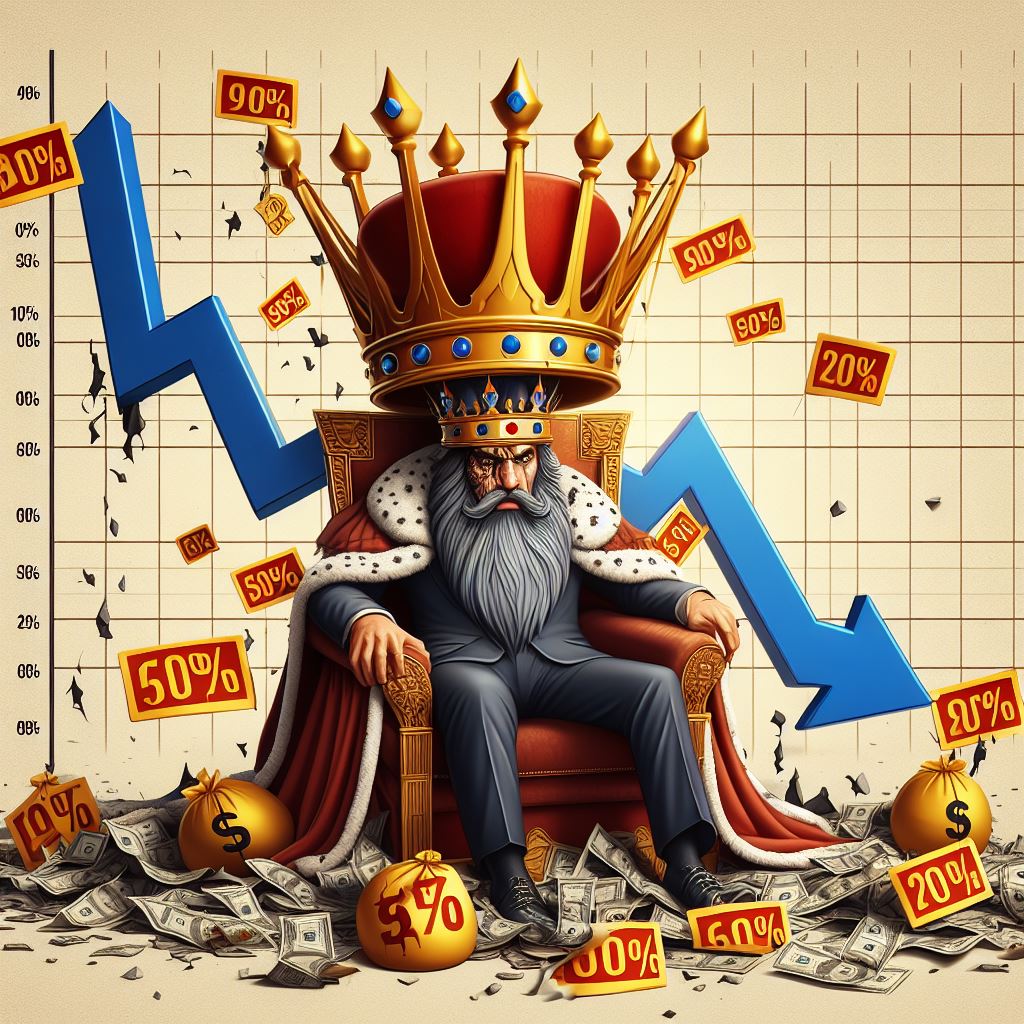The Rise and Fall of the Discount King Who Lost Their Crown:
A Comprehensive Analysis of the Pros and Cons of Groupon:
In the annals of e-commerce, Groupon once reigned supreme as the undisputed monarch of discounts, offering daily deals that captivated consumers and businesses alike. However, as the dust settles on its meteoric rise, the cracks in its once-gilded facade have become increasingly apparent. Dubbed the "Discount King," Groupon now finds itself grappling with a host of challenges that have tarnished its crown and raised questions about its long-term viability.
The Pros of Groupon:
1. Consumer Attraction:
Groupon's ascent to prominence was fuelled by its unparalleled ability to attract a vast legion of deal-seekers. From discounted dinners to spa treatments, Groupon's daily offerings promised substantial savings on a diverse array of products and services, drawing in thrifty consumers eager to capitalize on unbeatable bargains.
2. Advertising Platform:
Beyond its role as a purveyor of discounts, Groupon emerged as a potent advertising platform for businesses seeking to bolster their visibility and attract new customers. By partnering with Groupon, businesses could amplify their reach and introduce their offerings to a broader audience, effectively leveraging the platform as a springboard for increased brand exposure.
3. Inventory Clearance:
For businesses burdened by excess inventory or underutilized services, Groupon offered a lifeline in the form of discounted deals that facilitated inventory clearance and generated much-needed revenue. Whether it was surplus merchandise languishing on shelves or unbooked appointments gathering dust, Groupon provided a means for businesses to liquidate their assets and recoup lost profits.
4. Relationship Building:
Groupon's allure extended beyond one-time transactions, with businesses leveraging discounted deals as a means to cultivate long-term relationships with customers. By offering incentives for repeat visits or purchases, businesses could nurture loyalty and foster deeper connections with their clientele, laying the groundwork for sustained patronage and ongoing engagement.
5. Incremental Revenue:
In an era marked by economic uncertainty, Groupon emerged as a beacon of hope for businesses seeking to augment their bottom line. With minimal overhead and fixed costs, businesses could capitalize on Groupon promotions to generate incremental revenue, bolstering their financial resilience and weathering the storms of economic downturns.
THE Cons of Groupon:
1. Bargain Seekers:
While Groupon's appeal was undeniable, its customer base was often characterized by bargain hunters with a penchant for discounts. As businesses catered to this price-sensitive demographic, they risked attracting customers with limited spending propensity, resulting in lower average transaction values and diminished profitability.
2. Brand Impact:
As businesses clamoured to participate in Groupon promotions, concerns emerged regarding the long-term impact on brand perception and equity. By positioning themselves as discount destinations, businesses risked diluting their brand identity and cultivating a customer base driven solely by price considerations, rather than loyalty to the brand itself.
3. Lack of Repeat Customers:
Despite the initial influx of new customers spurred by Groupon promotions, businesses encountered challenges in converting these one-time buyers into loyal, repeat customers. Groupon users often failed to return to businesses at full price, leading to low conversion rates for repeat visits or purchases and undermining efforts to foster lasting customer relationships.
4. Profitability Concerns:
While Groupon offered businesses a platform for increased visibility and revenue generation, its revenue-sharing model posed significant challenges to profitability. With Groupon retaining a substantial portion of each deal's revenue, businesses faced mounting pressure to ensure that their profit margins could withstand the financial implications of participation.
5. Alternative Marketing Options:
As businesses grappled with the complexities of Groupon's offerings, questions arose regarding the efficacy of its promotions relative to alternative marketing strategies. While Groupon provided short-term benefits in terms of increased visibility and foot traffic, businesses were forced to weigh these advantages against the potential costs and explore alternative avenues for achieving their marketing objectives.
Rethinking Discount Platforms:
The Getslocal Club Advantage
As businesses grapple with the limitations and drawbacks of discount-centric platforms like Groupon, a paradigm shift towards smarter and more sustainable alternatives is underway. Enters Getslocal Loyalty Club, offering a comprehensive solution tailored to modern business needs, emphasizing long-term growth and customer loyalty.
1. The Smarter Choice: Getslocal Loyalty Club:
In contrast, Getslocal Loyalty Club prioritizes strategic loyalty initiatives over short-term discounts, empowering businesses to cultivate lasting relationships and maximize customer lifetime value.
2. Building Lasting Connections:
With Getslocal Loyalty Club, businesses leverage personalized incentives and rewards to incentivize repeat visits and purchases, fostering loyalty and differentiation in a competitive marketplace.
3. Data-Driven Decision-Making:
Getslocal Loyalty Club equips businesses with valuable insights and analytics, enabling data-driven decision-making and optimization of marketing efforts for sustainable growth.
Conclusion:
In the era of digital marketing, Getslocal Loyalty Club emerges as a smarter and better alternative to traditional discount platforms like Groupon. By focusing on customer loyalty and long-term value creation, Getslocal Loyalty Club empowers businesses to thrive in a dynamic and competitive landscape, setting the stage for sustained success and growth.
The Pitfalls of Groupon Revisited:
While Groupon once reigned as the "Discount King," its model poses significant challenges for businesses, from attracting bargain hunters to diluting brand identity and profitability concerns. In retrospect, the rise and fall of Groupon serve as a cautionary tale for businesses navigating the ever-evolving landscape of e-commerce and digital marketing.
While Groupon's ascent to prominence was fuelled by its ability to deliver unprecedented discounts and drive consumer engagement, its subsequent decline underscored the inherent risks and pitfalls associated with discount-centric business models. As businesses reflect on the lessons learned from Groupon's trajectory, they must approach discount promotions with a critical eye, balancing short-term gains against long-term sustainability and brand integrity.


